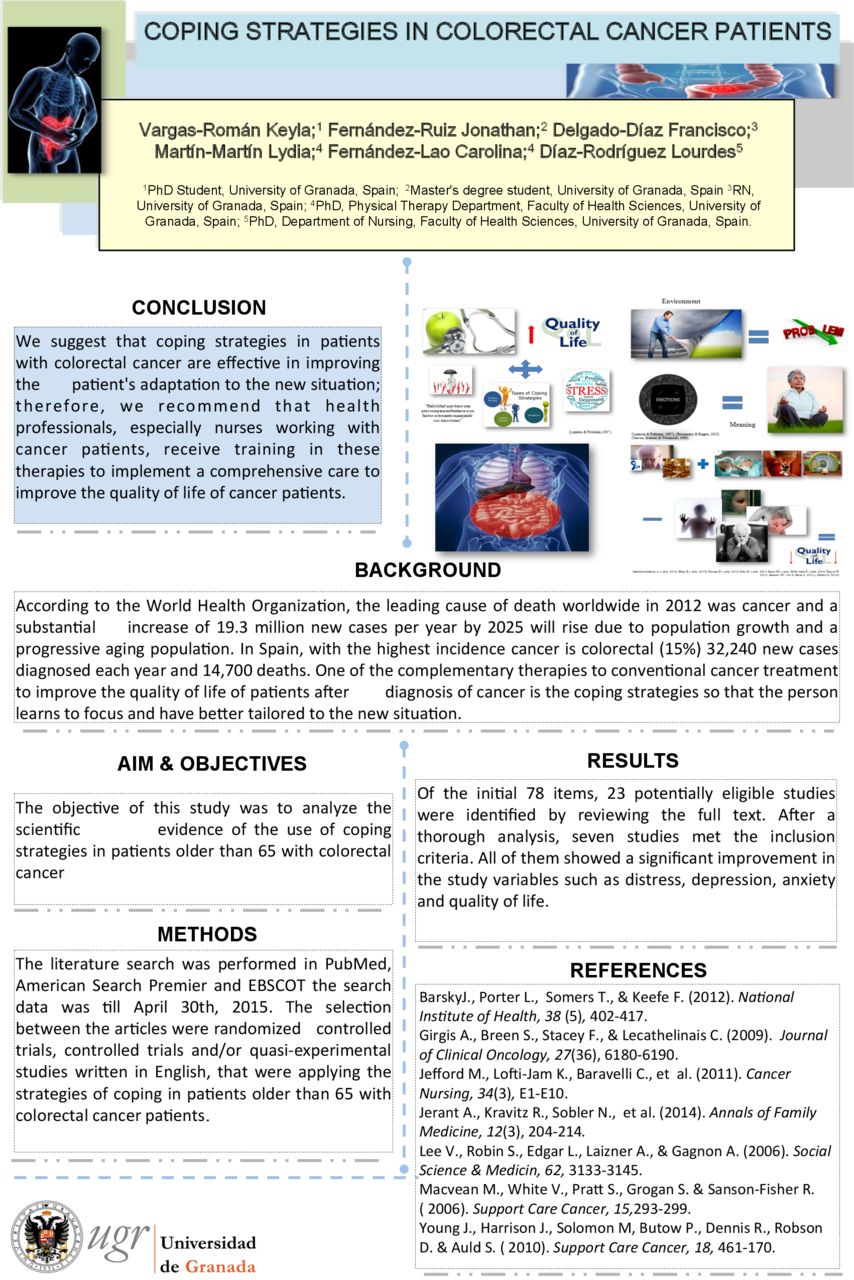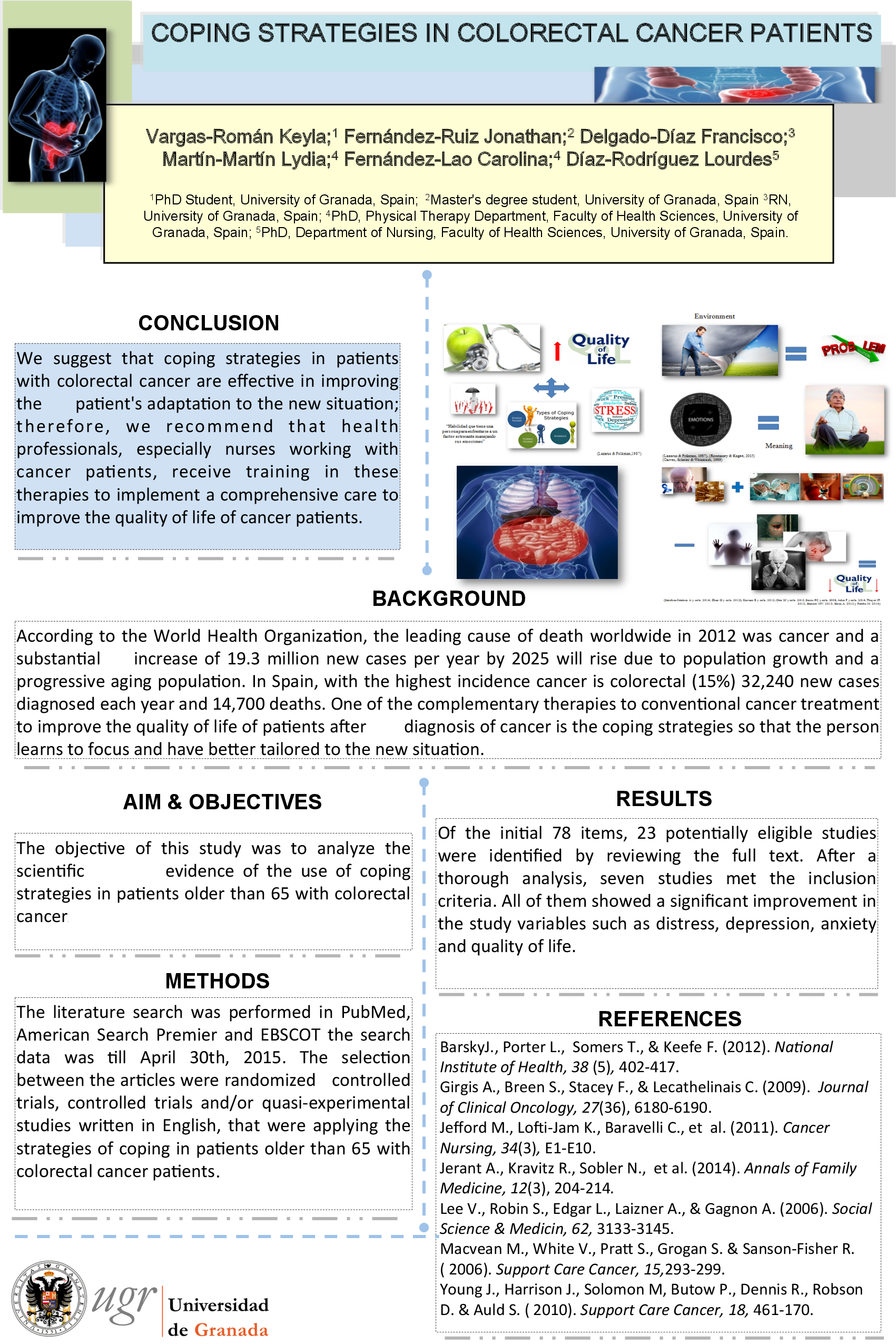Abstract
Background: According to the World Health Organization, the leading cause of death worldwide in 2012 was cancer and a substantial increase of 19.3 million new cases per year by 2025 will rise due to population growth and a progressive aging population. In Spain, with the highest incidence cancer is colorectal (15%) 32,240 new cases diagnosed each year and 14,700 deaths. One of the complementary therapies to conventional cancer treatment to improve the quality of life of patients after diagnosis of cancer is the coping strategies so that the person learns to focus and have better tailored to the new situation.
Aim & Objectives: The objective of this study was to analyze the scientific evidence of the use of coping strategies in patients older than 65 with colorectal cancer.
Methods: The literature search was performed in PubMed, American Search Premier and EBSCOT the search data was till April 30th, 2015. The selection between the articles were randomized controlled trials, controlled trials and/or quasi-experimental studies written in English, that were applying the strategies of coping in patients older than 65 with colorectal cancer.
Results: Of the initial 78 items, 23 potentially eligible studies were identified by reviewing the full text. After a thorough analysis, seven studies met the inclusion criteria. All of them showed a significant improvement in the study variables such as distress, depression, anxiety and quality of life.
Conclusions: We suggest that coping strategies in patients with colorectal cancer are effective in improving the patient's adaptation to the new situation; therefore, we recommend that health professionals, especially nurses working with cancer patients, receive training in these therapies to implement a comprehensive care to improve the quality of life of cancer patients.





